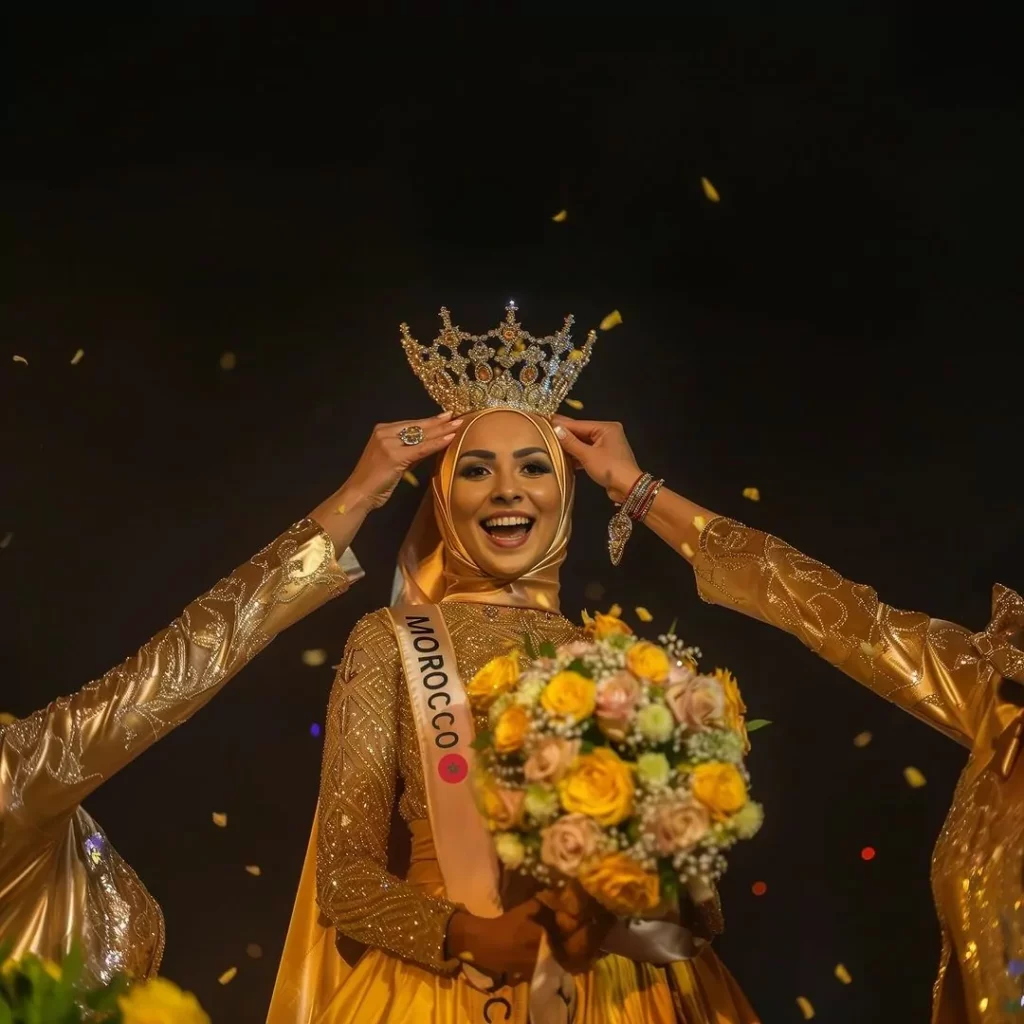Hijab-wearing Moroccan crowned ‘Miss AI’ in virtual beauty pageant

A digitally generated Moroccan ‘influencer’ has been crowned as the world’s first-ever Miss AI 2024 beauty pageant, amid criticism of the increase of artificial intelligence technology in a number of fields.
Kenza Layli, a hijab-wearing “influencer”, beat fellow AI-generated competition from the likes of France and Portugal among 1,500 AI-generated contestants to win the title, as well as a prize-money of $20,000.
The AI influencer was created by Meriam Bessa at Moroccan media agency L’Atelier Digital & AI, based in the country’s largest city of Casablanca.
Bessa said she had utilised technologies to generate her image, video, and audio content entirely from AI.
The 40-year-old CEO told US-based outlet The Post that the contest “is an opportunity to represent Morocco with pride, and to highlight Moroccan, Arab, African, and Muslim women in the field of technology”.
“I am also very happy to be able to stand for subjects that are dear to me through Kenza Layli, like women empowerment and sisterhood,” she said.
Bessa also bagged a prize money of and bagged $5,000, an “imagine creator mentorship programme” worth $3,000 (€2,800) as well as PR support worth more than $5,000 for coming in first place.
On Instagram celebrating her win, Layli posted multiple images of herself draped in a gold-sequined dress, adorned with sash, and a crown. The influencer said the award was “an honour”, calling it |”a tribute to all our efforts in the field of AI and representing Morocco” in the competition.
AI-generated Layli boats a considerable following on Instagram, with 197,000 followers. On her page, Layli ‘shares’ posts about fashion, activism and travel. Her ‘content’ is written in both Arabic and English.
The artificial intelligence beauty contest was introduced by the World AI Creator Awards earlier this year.
The Fanvue Miss AI pageant said the aim of the contest was to showcase “a shift in how we perceive beauty and creativity within the realms of artificial intelligence”, and bringing together AI creators from across the globe to showcase their digital creations vying for the Miss AI crown.
The contest was judged by two humans and two AI-generated models, Euronews said, with the winner being judged based on “realism, tech, and social clout”.
One of the judges, Aitana Lopez, said Layli had “great facial consistency and achieved high quality in details like hands, eyes, and clothing”.
Kenza Layli’s victory as Miss AI comes as experts have warned about the potential dangers posed by the rise of artificial intelligence in several fields, as well as the objectification of women.
Many activists have said that AI-generated women typically adhere to societal expectations of what women “should look like” or even behave. Many AI-generated persons can appear ‘flawless’ and conventionally ‘attractive’, which can manipulate audiences and feed into unrealistic expectations of women’s appearances, and cater to male-dominated audiences.
Moroccan feminist and activist Betty Lachgar criticised Layli’s win, as the nature of the event is based on “internalising and perpetuating gender stereotypes” which reflect “the sexist biases in society”.
“With this Miss competition we don’t really understand if the victory concerns her skills, competences… it seems about beauty. Women via this symbolism are once again reduced to their physical appearance, hupersexualised and objectified,” the founder of the M.A.L.I movement told the New Arab.
The activist said the AI competition is “exactly like in real life and in the miss contests who put women in competition”.
Another activist and feminist, Yasmina Benslimane, said while it’s great that Moroccan culture is being honoured and celebrated, it’s “it’s unfortunate that it has to be in a digital space and for a beauty pageant”, as there are more pressing issuing plaguing women and Morocco.
The technology has also been criticised for its inaccuracies and doing a disservice surrounding the appearance of people, or any topic at hand. Last year, during the Barbie film craze, AI-generated images of the doll representing different cultures went viral on social media.
The images were heavily slammed by activists and social media users for feeding into ethnic stereotypes and racist tropes.
Activists have denounced AI for enabling the spread of false information. Amid Israel’s war in Gaza, right-wing US commentator was slammed for sharing an AI-generated image of a ‘burnt Jewish baby’ and was accused of using fake images to “defend Israel” amid its war on the enclave.
The technology was also slammed Israel supporters for distorting previous comments made by Palestinian-American model Bella Hadid, making it appear like she is apologising for her usual pro-Palestinian stance.





